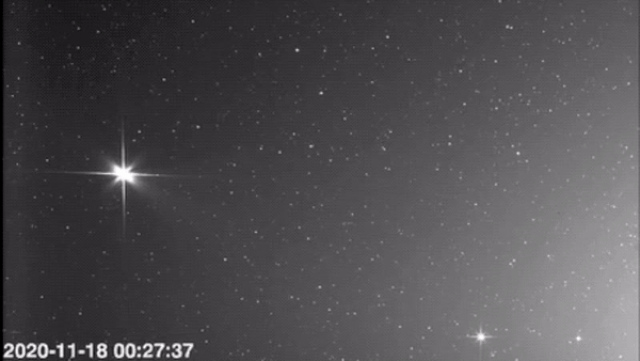Space Swoon: Deep space view shows Earth, Venus, and Mars in a single frame. Perspective++

Ya’ll want a glorious look? Check out this view from deep space, which captures Earth, Venus, and Mars in one frame. Hell fucking yeah!
Gizmodo:
Well, here’s something you don’t see every day.
On November 18, 2020, the Solar Orbiter managed to capture three of our solar system’s eight planets in a single frame, according to a European Space Agency statement. The resulting four-second movie was stitched together from a series of still images taken across 22 hours.
Venus is the largest and brightest of the objects, followed by Earth and then Mars to the lower right of the frame. What’s particularly cool about this vantage point is that the probe is peering back into the solar system as it heads away from the Sun and towards Venus.
When the photos were taken, Solar Orbiter was 30 million miles (48 million km) from Venus, 156 million miles (251 million km) from Earth, and 206 million miles (332 million km ) from Mars. The Sun is out of frame to the lower right, but its glow is clearly visible.
The spacecraft, a collaboration between NASA and the European Space Agency, was en route to Venus for a gravitational assist when the images were taken using its Heliospheric Imager (SoloHI) camera. Solar Orbiter eventually flew past Venus on December 27. A steady diet of flybys with Earth and Venus will bring the probe closer to the Sun and also tilt its axis of orbit such that it can observe the Sun from different angles.
Launched in February 2020 and equipped with 10 different instruments, Solar Orbiter is a mission to study the Sun from up-close. The closest images ever taken of the Sun, made last July, showed previously unknown “campfires” on the surface of our star, uncovering stellar processes only dreamed about in theory.
The probe is also studying conditions in its immediate vicinity, namely the solar wind, or charged particles, pouring out from the Sun into space. The resulting data will help scientists to predict inclement space weather that can harm communications and technology on Earth.



